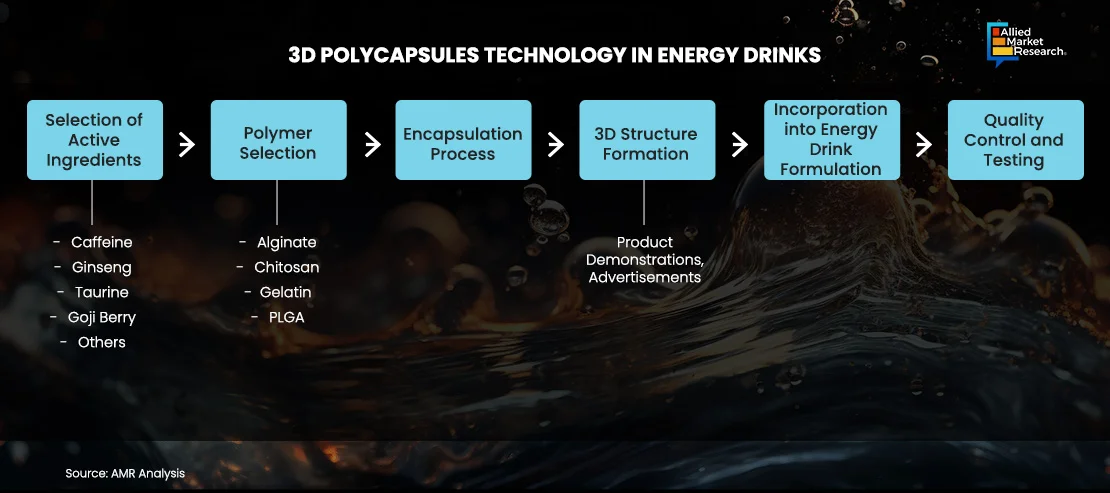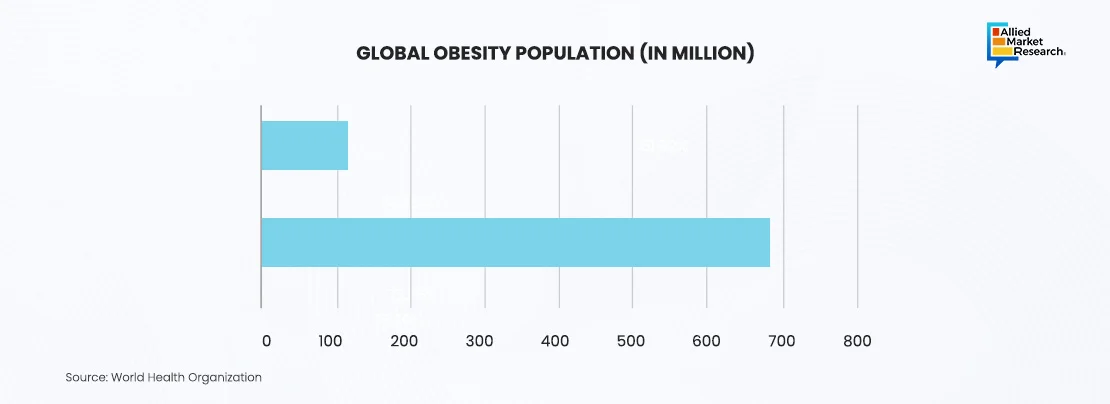Table Of Contents

Roshan Deshmukh

Anuya Rupesh Waghmare
The Power of Energy Drinks: From Buzz to Boost

Energy drinks were majorly formulated using sugar and caffeine in the initial stages to increase alertness and provide an energy boost. However, in recent times, these have evolved significantly from simple energy-boosting supplements to advanced performance boosters. In addition, the introduction of plant-based ingredients or natural extracts along with amino acid formulations cater to specific consumer needs and dietary preferences.
Technological advancements such as sustainable packaging and Artificial Intelligence (AI), have revolutionized the energy drinks market. Sustainable packaging aligns with demands for eco-friendly products, thereby reducing the environmental impact. Monster Energy introduced a tactile finish in their beverage cans, which has helped to provide unique packaging to their products, offer a smooth touch finish, and reduce the use of harmful chemical ink. A tactile finish refers to a textured surface or coating applied to packaging materials, which provides a unique tactile sensation when touched.
The implementation of AI technology in the designing, formulating, and manufacturing of energy drinks by using a vast dataset of consumer behavior, preferences, and tastes has helped in offering new products in the market. For instance, a Hungarian beverage manufacturer, Hell Energy Drinks claims to have used AI to design the first energy drink on the basis of consumer preferences and expectations by analyzing the databases of customer preferences, calorie requirements, and flavor profiles, AI algorithms successfully identified the optimal mix of substances that provide energy-boosting effects with pleasant taste. The Hungarian beverage manufacturer used machine learning models to analyze how ingredients function and affect flavor, ensuring the product matches the functional and taste expectations of the consumers.
In addition, one of the most prominent technologies introduced in the market is the 3D polycapsules technology. 3D polycapsule technology is a complex approach to encapsulating active substances within small polymer shells, resulting in a network of three dimensions of capsules. The 3D polycapsules are designed in a way that makes them stable and long-lasting and helps in maintaining and safeguarding the encapsulated compounds until their contents are used for the manufacturing of energy drinks. Unlike standard encapsulation processes, which result in two-dimensional distinct layers of capsules, 3D polycapsule technology generates a three-dimensional network containing encapsulating substances. This form has a larger surface area and provides greater oversight over the dispersion kinetics of the bioactive chemicals.
Prominent enterprises in this domain are industrial giants such as Smart Cups are continuously working in the industry to introduce 3D polycapsules energy drink products into the market that will cater to the different needs of individuals. Smart Cups is the world's first printed energy drink beverage, and its technology allows them to print on any surface. Their energy drink cup is printed with all the active components, which are then encased in a plant-based exoskeleton that helps the compounds adhere to the outer layer on which they are printed. When this exterior comes into touch with liquid, it reacts and releases the self-stirring chemicals, which then completes the overall manufacturing process.
Role of 3D Polycapsule Technology in Energy Drinks Market
3D polycapsules technology is critical in revolutionizing the energy drinks sector by providing creative solutions to major difficulties and fulfilling changing customer preferences. It prolongs the shelf life of energy beverage compositions by forming a layer of protection around sensitive active components, thus reducing deterioration caused by sunlight, oxygen, and humidity. This guarantees that the drink is safe from contamination & spoilage and the consumer has a satisfactory experience. In addition, 3D polycapsules technology allows for exact regulation of the dispersion kinetics of energy-boosting substances such as caffeine, resulting in continuous boost of energy levels for a longer period, which was a major problem seen in older formulations of energy drinks. This regulated release method improves the entire consumer experience by delivering a more consistent and lasting energy boost.
Additionally, the technique enables the encapsulation of sharp or unpleasant-tasting chemicals, which improves the flavor and taste of energy drinks and also provides chances for textural enhancement. Furthermore, the flexibility of 3D polycapsule technological advances allows for the inclusion of additional beneficial substances tailored to particular consumer preferences, including cognitive enhancers or relaxing compounds, which drives product differentiation as well as creativity in the energy drink market.

Graphical Representation of 3D Polycapsules Technology in Energy Drinks
Global Obesity Statistics
According to the World Health Organization, there are almost 800 million obese individuals globally, comprising more than 670 million adults and at least 120 million children & adolescents. This figure is still rising. The WHO forecasts that an additional 167 million adults and children would lose health due to being overweight or obese by 2025. The sugar content in traditional energy drinks is relatively high as sugar is one of the main components that helps balance the sweetness and provides energy. While the popularity of energy drinks among millennials and Generation Z is high, the consumption of energy drinks is also higher than Generation X and baby boomers. The high consumption of energy drinks leads to a major increase in obesity, thus 3D polycapsule technology plays an important role in changing the perception of the consumption of energy drinks. The 3D polycapsule technology allows for precise control over the release rate of all its ingredients, enabling more efficient use of sweeteners. Consequently, it enhances the perception of sweetness while reducing the actual requirement of sugar needed for the formulation of energy drinks, thus lowering the overall sugar content without compromising taste. 3D polycapsules are designed to encapsulate and release other beneficial nutrients and compounds in a targeted manner, further improving the health profile of energy drinks.

Transformation in Energy Drinks
In short, the energy drinks market is witnessing a high growth rate due to the introduction of 3D polycapsules technology, which is assisting in the formulation of energy drinks with low sugar and caffeine content, especially for consumers of different age groups. This shift is expected to reduce government scrutiny on energy drinks and encourage health-conscious consumers to consume the product safely. Encapsulated energy drinks have provided a chance for energy drink manufacturers to change the current perception of consumers toward energy drinks. The continuous efforts of the market players to formulate new technologies for improving the ingredient quality & the manufacturing processes along with an increasing investment towards R&D activities is expected to help the market to cater to the consumer's requirements and to keep up with the trends. This is projected to eventually improve the market growth stability across the globe.
For further insights, get in touch with AMR analysts.

